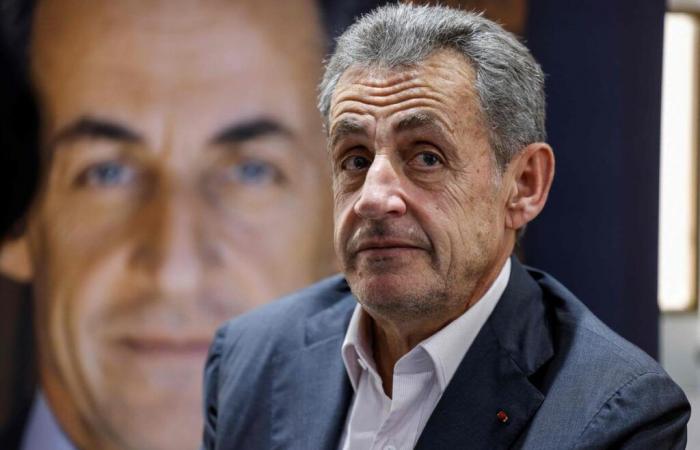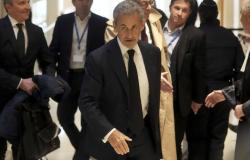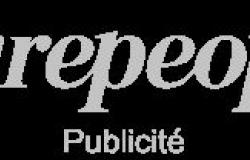Udon't have a heart attack. And a slip. This is the official conclusion of the investigation by the Austrian authorities following the discovery, on April 29, 2012, of the body of Choukri Ghanem, floating in the waters of the Danube in Vienna. But according to diplomatic cables disclosed in 2016 by WikiLeaks, many intelligence services had some doubts about the death of the former Libyan oil minister. “A highly suspicious death,” relates, for example, a memo addressed to Secretary of State Hillary Clinton.
Moussa Koussa's note
Coincidentally (or not) with the calendar, the death of this holder of the secrets of Colonel Gaddafi's regime occurred barely 24 hours after the publication by the Mediapart site of a note attributed to Moussa Koussa, Libyan intelligence chief, reporting a project to finance Nicolas Sarkozy's 2007 campaign to the tune of 50 million euros.
The former president has always formally denied the fact that he could have been bought by the Libyan dictatorship, repeatedly recalling that he was one of the main architects of its fall. “If it were a series, we would say that the scenario is improbable” mocked the former president in November 2020.
The order signed by judges Aude Buresi and Virginie Tilmont, more than ten years after the publication of the Mediapart article and which will constitute the basis of the trial which opens this Monday until April 10, would easily fuel a series on Netflix. But the magistrates considered, on the contrary, that there were sufficient charges to submit to a court the scenario according to which the candidate had requested funds from the Libyan dictator in exchange, in particular, for the rehabilitation of the “guide” on the scene international.
In legal terms, this assessment is reflected in the most spectacular prosecutions ever suffered by politicians of this rank. Nicolas Sarkozy, Brice Hortefeux and Claude Guéant are being prosecuted for “criminal conspiracy”, alongside the sulphurous intermediaries Alexandre Djourhi and Ziad Takieddine, the businessman Thierry Gaubert as well as the former Libyan dignitary Bechir Saleh and Saudi financiers. In addition, for the main defendants (including Nicolas Sarkozy), prosecutions for “corruption”, “embezzlement of public funds”, or even “illicit financing of an electoral campaign”. Éric Woerth, former treasurer of the 2007 campaign, is responsible for “illegal campaign financing”.
The oil minister's notebooks
Choukri Ghanem was never questioned. But his diary spoke for him. On the page of April 29, 2007, the Gaddafi dignitary mentions funding of 6.5 million intended for Nicolas Sarkozy via three channels: Saïf Al Islam, the dictator's son; Bechir Saleh, the manager of the Libyan state investment fund and Abdallah Senoussi, the big boss of intelligence.
For the judges, the corruptive pact would have been established in the fall of 2005. At this period, while their functions did not in any way involve establishing this type of contact, Claude Guéant, chief of staff of the Minister of the Interior Nicolas Sarkozy and Brice Hortefeux, Minister of Communities, went in turn to Tripoli to meet Abdallah Senoussi, far from the gaze of French diplomacy. The matchmaker is an “intermediary”, a man responsible for oiling foreign players in arms contracts, named Ziad Takieddine.
Questioned by the judges, Takieddine and Senoussi confirmed (Claude Guéant and Brice Hortefeux deny) that these meetings were for the purpose of the 2007 campaign. Was this also the case for the mysterious trip of the Minister of Interior Nicolas Sarkozy in Tripoli on October 6, 2005? Several Libyan dignitaries assure this. Just like Youssef el Megarief, the former opponent brought to power by the Libyan revolution and hardly suspected of seeking revenge on the French. For his part, Ziad Takieddine, after having confirmed it in turn, retracted. Before fleeing to Lebanon.
The investigation was able to identify two financial circuits. The first targets an account opened in Lebanon by Ziad Takieddine, credited with 6 million euros from the Libyan public treasury and its intelligence services. The second, more complex, features another “intermediary”, Alexandre Djourhi, also close to the right and who was linked to Bechir Saleh who allegedly had 10 million euros paid in 2008 into a Panamanian account.
A countryside full of cash
Nicolas Sarkozy's defense insists that no Libyan money was handed over to the former presidential candidate and that the amounts alleged according to the witnesses vary from one to ten. This weakness of the file in no way erases a possible corrupt pact, however, according to the magistrates. Even if they do not disagree: “No cash transfer was made to Nicolas Sarkozy”.
The same is not true for Claude Guéant, whose 500,000 euros supposedly received from the sale of two Flemish paintings mask money coming from Libya via an offshore circuit managed by Djourhi. The 440,000 euros paid to Thierry Gaubert in a Trust in the Bahamas, coming from Libya via Takieddine, are just as intriguing. Especially since his conviction in the Karachi affair against a backdrop of illegal financing of Édouard Balladur's campaign sharpens the profile of this former collaborator of Nicolas Sarkozy.
In any case, the investigation highlighted a massive circulation of undeclared cash within the UMP candidate's campaign team. Large denominations would have been used for salary supplements, end-of-campaign bonuses, payment of drivers… Was it to store them that Claude Guéant had rented a 12 square meter safe from the BNP from March to July 2007? The former interior minister assured that he wanted to keep “Nicolas Sarkozy’s speeches” there.
Five years before the “Bygmalion” martingale which had allowed the former president to spend double the authorized limit for his 2012 campaign, the 2007 campaign had perhaps, whatever the origin of these cash, it also broke the authorized limits. The Bygmalion affair has already earned him a conviction. Just like the Bismuth affair which will soon result in him wearing an electronic bracelet. The political life of Nicolas Sarkozy is an inexhaustible subject of research for justice.






